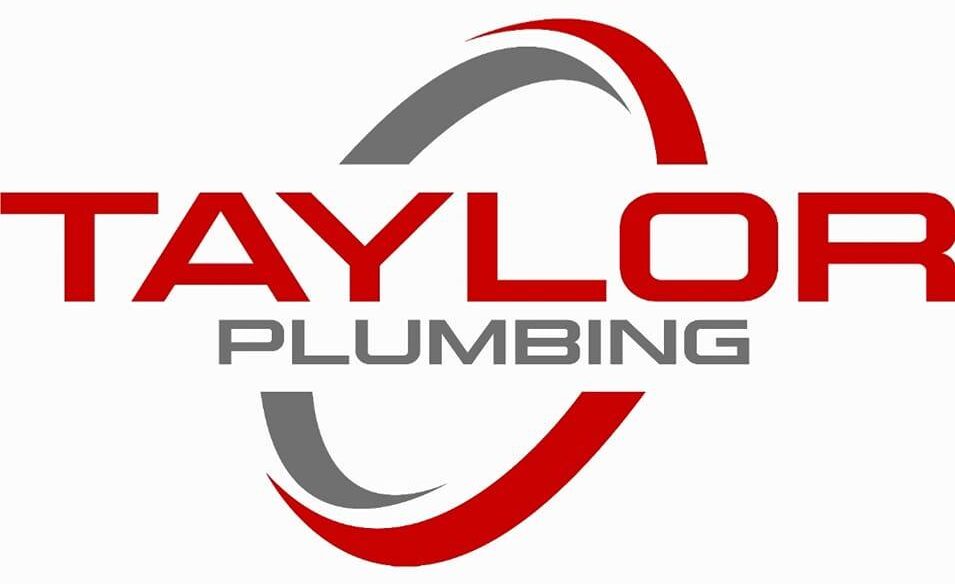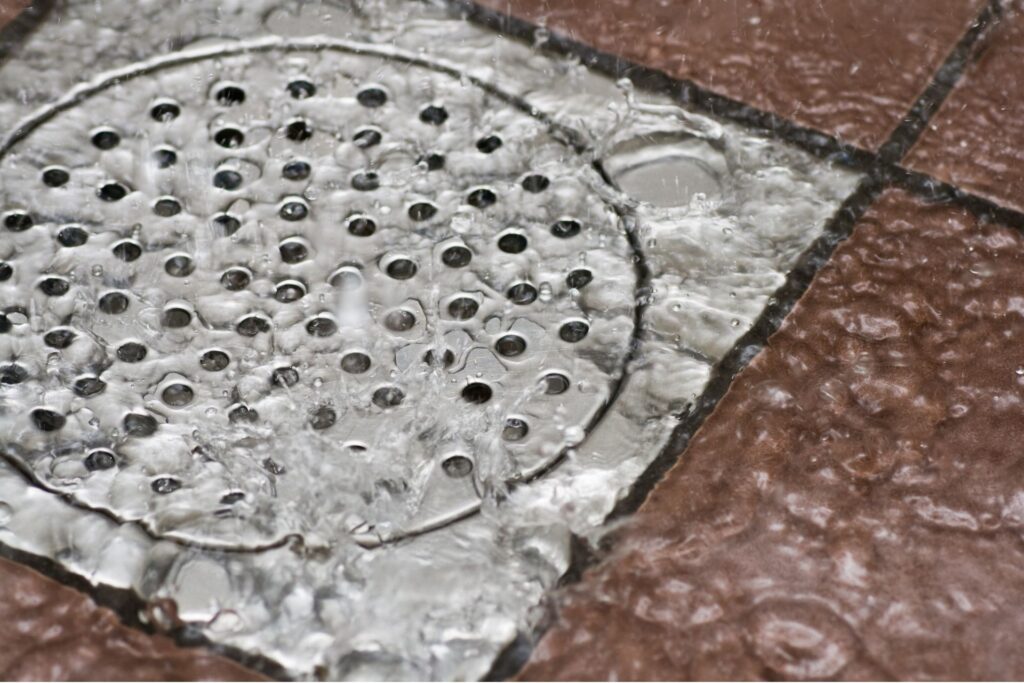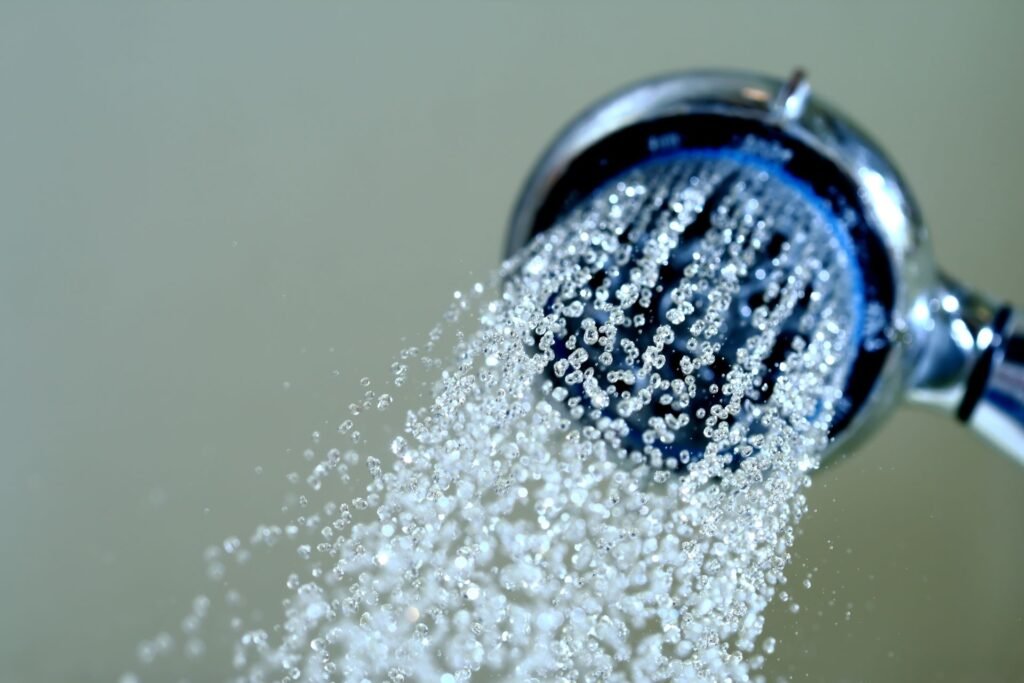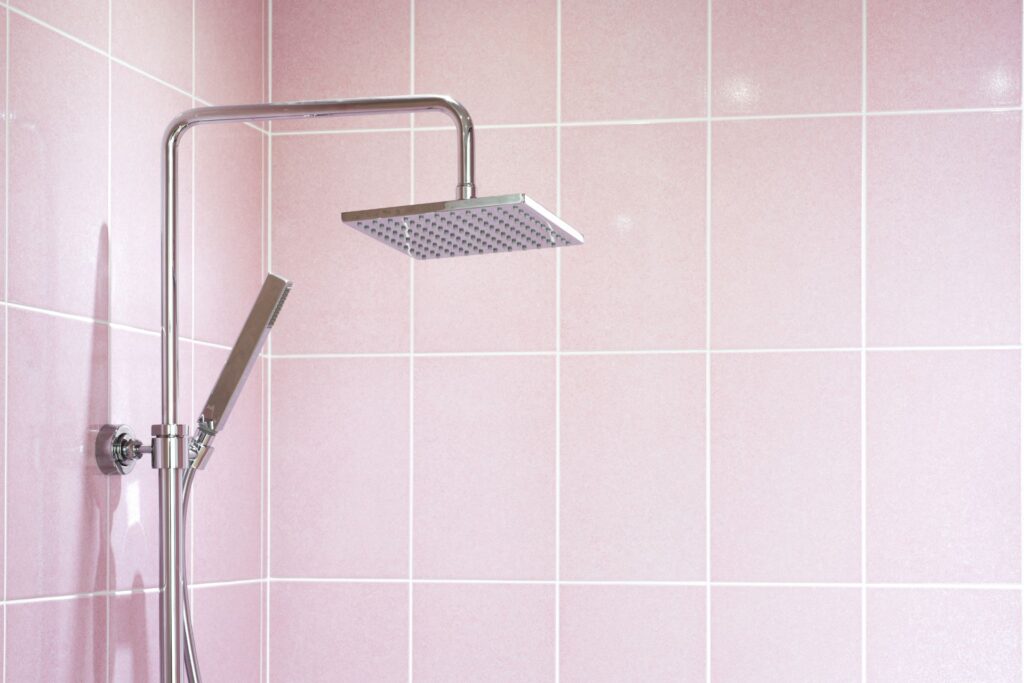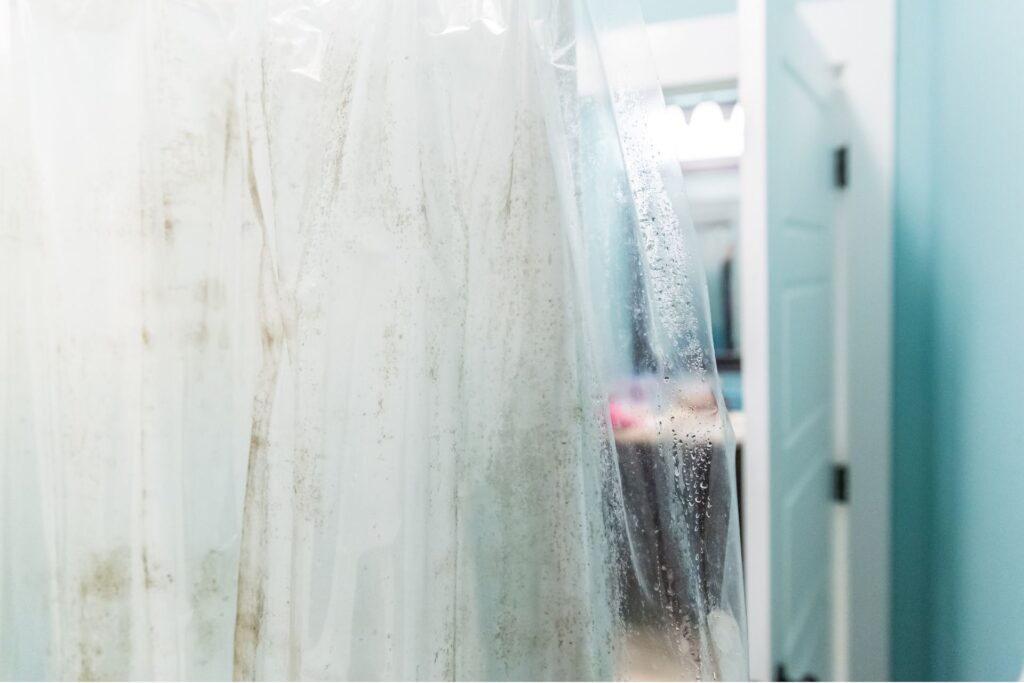Ultimate Guide To How To Unblock Shower Drain NZ
Welcome to your ultimate guide on how to unblock a shower drain, a common household issue that can quickly turn from a minor nuisance into a major problem if not addressed promptly. We’ve all faced the frustration of water pooling at our feet in the shower, a clear sign of a clogged drain that threatens not just our daily routines but also the hygiene and integrity of our bathrooms. But fear not! In this guide, we’re going to arm you with simple, yet effective techniques to tackle this problem head-on. With a touch of empathy for your situation, we promise to walk you through each step with clarity and a human touch, ensuring that by the end of this journey, you’ll be more than equipped to reclaim the smooth flow of your shower, all while avoiding potential water damage and keeping those pipes in pristine condition.
Start by removing any visible debris from the drain. Next, pour a mixture of 1 cup of baking soda followed by 1 cup of vinegar down the drain. Wait for 15 minutes to allow the mixture to break down the clog. Finally, pour boiling water down the drain to flush out the loosened debris. This easy and eco-friendly method effectively clears blockages caused by hair and soap scum, restoring smooth water flow in your shower. For more stubborn clogs, a plunger or a plumber’s snake may be required.
Why Shower Drains Get Blocked
Having a shower drain that clogs frequently can be more than just a nuisance; it can be indicative of underlying issues that need addressing. Whether you’re dealing with water that refuses to drain properly or unpleasant odors emanating from your shower, understanding the root causes of these blockages can be the first step toward finding a lasting solution. Here, we delve into the common reasons shower drains get blocked and offer practical advice on how to prevent them.
Overview of Common Causes
Blocked shower drains can stem from various factors, ranging from everyday habits to the quality of water in your home. The primary culprits include:
Hair Accumulation: One of the leading causes of shower drain blockages, hair strands can entangle with each other and with other substances, creating significant clogs over time.
Soap Scum Buildup: Soap residue, combined with minerals from water, can harden and stick to the pipes, narrowing the passage for water to flow freely.
Mineral Deposits from Hard Water: Homes with hard water may experience a quicker buildup of mineral deposits in their pipes, exacerbating the risk of blockages.
Foreign Objects: Occasionally, small objects like bottle caps or pieces of jewelry can accidentally fall into the drain, leading to obstructions.
Brief Explanation of Each Cause
Hair Accumulation
Every time you shower, you shed hair. These strands can catch on small imperfections in the drain pipe, gradually accumulating and entangling to form a clog. To prevent this, consider using a drain guard that catches hair before it enters the drain. Regularly cleaning the guard will help keep your shower drain flowing smoothly.
Soap Scum Buildup
Soap scum results from the reaction between the fatty acids in soap and the minerals in water. This residue can adhere to pipes, gradually narrowing them and reducing water flow. Opting for liquid body washes, which tend to leave less residue than traditional bar soaps, and regularly cleaning your shower drain can mitigate this issue.
Mineral Deposits from Hard Water
Hard water contains high levels of minerals like calcium and magnesium, which can deposit on surfaces, including the insides of your pipes, leading to blockages. Installing a water softener system can significantly reduce mineral buildup, prolonging the life of your plumbing and easing water flow.
Foreign Objects
Small objects can easily slip into drains unnoticed, especially in showers without protective drain covers. These objects can trap other debris, exacerbating clogs. Using a drain cover and being mindful of small items in the shower can prevent these accidental blockages.
Regular maintenance and mindful habits can go a long way in preventing shower drain blockages. By understanding the common causes, homeowners can take proactive steps to ensure their showers remain clear and fully functional. Remember, prevention is key to avoiding the inconvenience and potential costs associated with unclogging drains. If you’re dealing with persistent issues, it might be time to call in a professional plumber to assess and address the underlying problems.
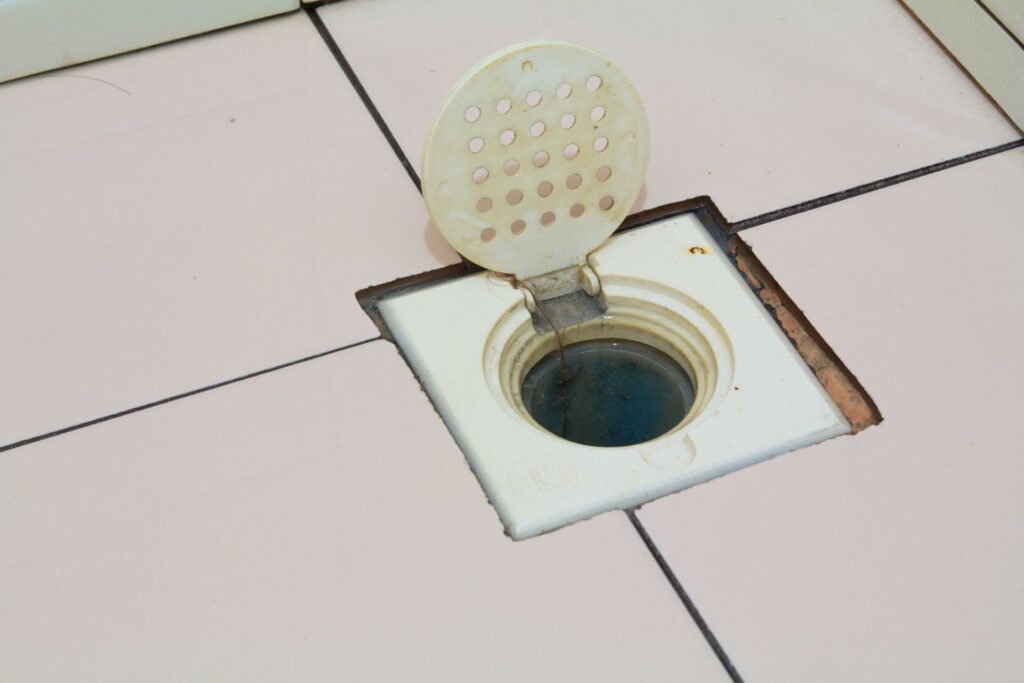
Tools And Materials Needed
When dealing with common household plumbing issues, having the right tools and materials at hand is essential. This guide aims to outline the necessary equipment and safety measures required to tackle plumbing problems effectively and safely. Our focus is on providing practical advice that can assist homeowners in maintaining their plumbing systems, emphasizing the importance of safety and efficiency.
List of Essential Tools for Plumbing Repairs
1. Plunger: Often the first tool reached for in times of a clog, plungers can be incredibly effective for unclogging toilets, sinks, and drains. The key to using a plunger effectively lies in creating a tight seal around the drain before applying a forceful, pumping motion.
2. Plumbing Snake (Manual or Electric): For tougher clogs that a plunger can’t clear, a plumbing snake, also known as a drain auger, comes in handy. This tool allows you to reach deeper into pipes to dislodge blockages. Electric models offer more power and are suitable for more severe clogs.
3. Baking Soda and Vinegar: This duo is a natural alternative to chemical drain cleaners, offering a less abrasive solution for clearing minor clogs and refreshing drain lines. The chemical reaction between baking soda and vinegar can help to break down fatty acids, allowing water to flush through pipes more freely.
4. Wet/Dry Vacuum: A wet/dry vacuum can be an invaluable tool for removing standing water or debris from clogged areas. Unlike regular vacuums, these are designed to handle moisture without damage, making them perfect for plumbing emergencies.
5. Bucket and Gloves: Always have a bucket on hand to catch water or debris when working on pipes. Gloves are essential for protecting your hands from harmful bacteria and chemicals during the cleaning process.
Materials and Safety Gear: Purpose and Precautions
Understanding the purpose of each tool and material is crucial for effective plumbing maintenance:
Plungers create a vacuum that can dislodge clogs without the need for chemicals.
Plumbing snakes physically remove blockages that chemical solutions cannot dissolve.
Baking soda and vinegar offer a non-toxic way to maintain clean and clear pipes.
Wet/dry vacuums can prevent water damage by removing spills quickly.
Buckets and gloves are basic but critical items for hygiene and safety.
When handling any plumbing tool or chemical, it’s important to follow the safety instructions:
- Always wear gloves to protect your hands from bacteria and harsh chemicals.
- If you use a chemical drain cleaner as an alternative to baking soda and vinegar, ensure the area is well-ventilated to avoid inhaling fumes.
- Read the manufacturer’s instructions before using a plumbing snake or wet/dry vacuum to prevent personal injury or damage to your plumbing system.
- Keep a bucket nearby when disassembling any part of your plumbing system to catch spills or debris.
By familiarizing yourself with these tools and safety practices, you can confidently address common plumbing issues. Remember, while DIY plumbing can be effective for minor repairs, serious plumbing problems should be handled by a professional to avoid causing further damage to your home’s plumbing system.
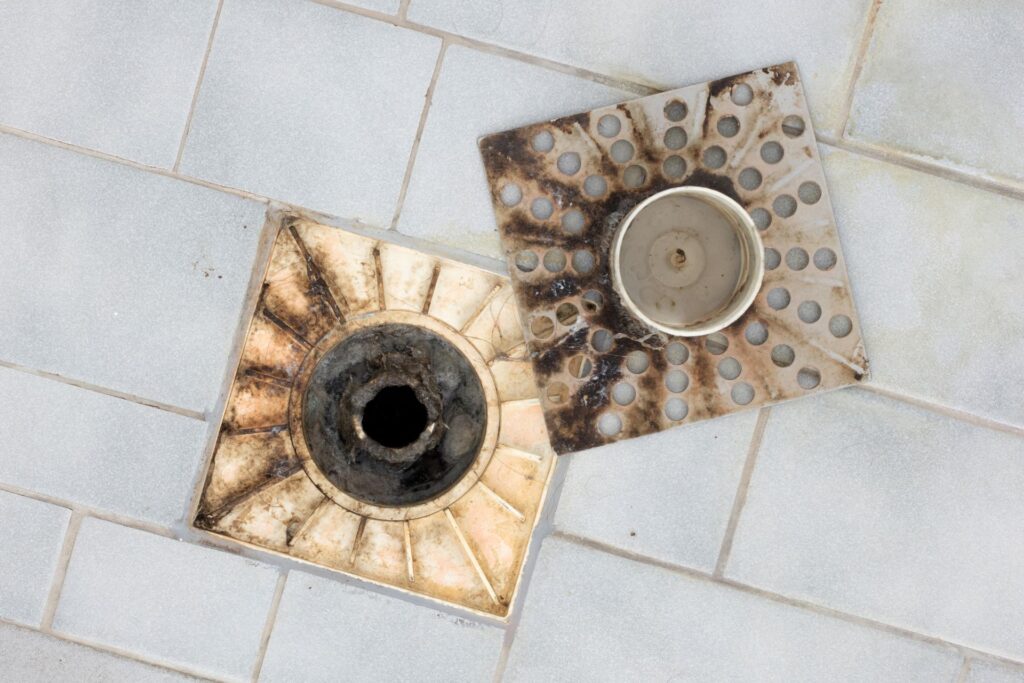
Step-By-Step Guide To Unblocking A Shower Drain
Dealing with a clogged shower drain can be a daunting task that disrupts your daily routine. However, with the right tools and methods, you can quickly restore the flow and enjoy your shower again. This comprehensive guide will walk you through various tried-and-tested methods for unblocking your shower drain, from simple preliminary steps to more advanced techniques. Whether you’re a DIY enthusiast or a homeowner seeking practical solutions, these steps will ensure you tackle the problem efficiently and safely.
Preliminary Steps: Prepare and Clear
Removing Visible Obstructions: The first step in addressing a clogged shower drain is to remove any visible debris. This often includes hair, soap scum, and small objects that might have accidentally fallen in. A pair of gloves and a flashlight are your best friends here, helping you to see and safely remove the obstruction.
Preparing the Work Area: Ensure the area is well-lit and you have easy access to the drain. Covering the surrounding area with towels or newspapers can help in cleaning up any spills or debris that might emerge during the process.
Method 1: Plunging into Action
Using a plunger is one of the simplest and most effective ways to clear a blockage. Here’s how to do it right:
Seal and Plunge: Make sure you have a good seal around the drain before you start plunging. A few vigorous pumps can often dislodge the blockage.
Water Magic: Ensuring there’s enough water in the shower to cover the plunger’s head can help create a strong suction, making the process more effective.
Method 2: The Natural Solution – Baking Soda and Vinegar
For those who prefer a natural approach, the combination of baking soda and vinegar can work wonders:
Pour and Wait: Start by pouring a cup of baking soda down the drain, followed by an equal amount of white vinegar. The chemical reaction between these two ingredients can help break down the blockage.
Rinse: After letting the mixture work its magic for an hour, rinse the drain with hot water to clear out the debris.
Method 3: Unleashing the Power of a Plumbing Snake
A plumbing snake, whether manual or electric, can reach deeper into the drain to remove clogs that other methods can’t:
Insert and Rotate: Carefully feed the snake into the drain until you feel resistance. Then, gently rotate the handle to hook the debris.
Withdraw: Slowly pull the snake out, bringing the blockage with it. Repeat if necessary until the water drains smoothly.
Method 4: The Wet/Dry Vacuum Technique
A wet/dry vacuum can be a powerful ally in combating stubborn clogs:
Seal and Vacuum: Create a tight seal around the drain using the vacuum’s hose. Turn it to the wet setting to avoid damaging the machine.
Suck it Up: With the seal in place, turn on the vacuum to its highest setting to suck out the blockage.
Tips for Each Method: Troubleshooting and Moving Forward
Patience is Key: Sometimes, it may take several attempts or a combination of methods to fully clear the blockage.
Know When to Switch: If one method doesn’t yield results, move on to the next. It’s important to recognize when it’s time to try a different approach.
Safety First: Always wear gloves and goggles to protect yourself from debris and chemicals.
Professional Help: If all else fails, don’t hesitate to call a professional plumber. Some blockages may be too deep or complex for DIY methods.
By following this step-by-step guide, you’re well on your way to unblocking your shower drain and preventing future clogs. Remember, regular maintenance and careful use of your shower can help avoid blockages, ensuring a smooth flow for years to come.
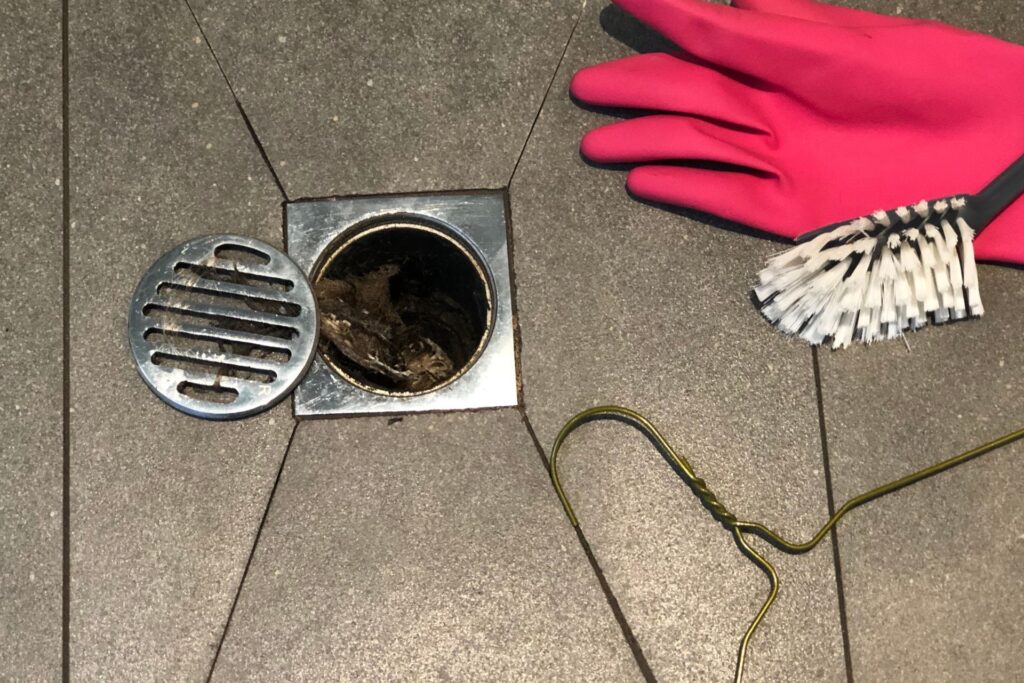
Preventive Measures
When it comes to maintaining a clean and functional home, one area that often gets overlooked is the drainage system. Preventive measures are crucial for ensuring your drains remain free from clogs and other issues that can cause significant inconvenience and even costly repairs down the line. Here’s a comprehensive guide on how to keep your drains in top shape, focusing on regular cleaning tips, recommended products, and lifestyle changes that can make a big difference.
Regular Cleaning Tips
Implementing routine maintenance practices is your first line of defense against future clogs. Regular cleaning not only keeps your drains smelling fresh but also prevents the build-up of debris that can lead to blockages. Start by boiling a kettle of water and pouring it down your drains once a week. This simple act can help dissolve any minor build-ups of fats, oils, and soaps that are starting to form. Additionally, consider using a mixture of baking soda and vinegar every month to maintain a clear drain. This natural solution creates a fizzing action that helps to break down stubborn clogs and residue.
Recommended Products
To aid in your preventive measures, certain products are highly recommended:
Drain Covers: A simple yet effective tool for catching hair, food particles, and other debris before they enter your drain. Installing drain covers in your sinks, showers, and bathtubs can significantly reduce the risk of clogs.
Natural Cleaning Solutions: For those who prefer eco-friendly options, natural cleaning solutions can be a game-changer. Products that utilize enzymes or bacteria to eat away at clogs are not only safe for your pipes but also for the environment.
Lifestyle Changes
Sometimes, the best way to prevent drain issues is to make small adjustments to our daily habits:
Minimizing Hair Loss in the Shower: Hair is a common culprit for shower drain clogs. Consider brushing your hair before you shower to remove loose strands. Additionally, installing a hair catcher over your drain can collect hair before it causes problems.
Reducing Soap Scum: Soap scum can build up in your pipes, leading to clogs and slow drainage. One way to combat this is by installing a water softener, which can reduce the minerals in your water that contribute to soap scum. Alternatively, consider using soap alternatives like shower gels or syndet bars, which are less likely to leave behind a residue.
By incorporating these preventive measures into your routine, you can significantly reduce the likelihood of facing drain issues. Regular cleaning, utilizing the right products, and making mindful lifestyle changes can all contribute to the longevity and efficiency of your home’s drainage system. Remember, a little prevention goes a long way in saving time, money, and the hassle of dealing with clogged drains.
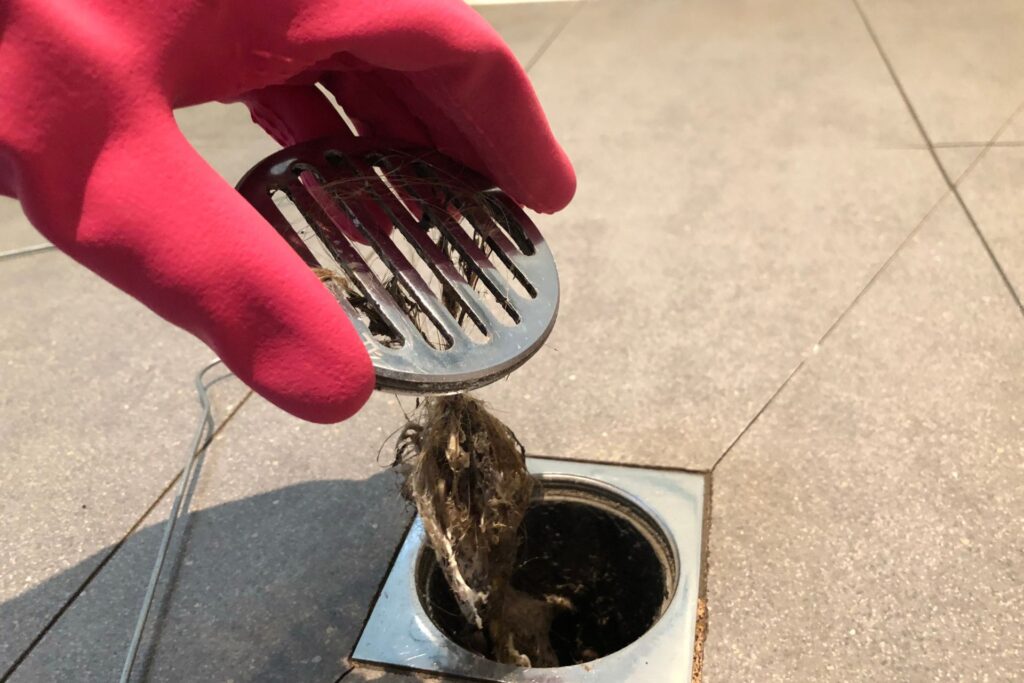
When To Call A Professional
In the realm of home maintenance, dealing with plumbing issues is a task that homeowners occasionally face. One of the dilemmas that arise is knowing exactly when it’s time to throw in the towel on DIY methods and call in a professional plumber. This piece aims to demystify that process, focusing on recognizing signs of severe blockages and understanding the benefits of professional help. Our goal is to provide you with insights that not only safeguard the functionality of your home’s plumbing but also prevent potential damage that could escalate costs and inconvenience.
Recognizing Signs of Severe Blockages
Plumbing issues can range from simple clogs that can be fixed with a plunger to complex blockages that require a professional touch. Here are signs that indicate a severe blockage in your plumbing system:
1. Water Backing Up in Other Drains: If you notice water backing up in drains unrelated to the one you’re using, it’s a telltale sign of a severe blockage deep within your plumbing system. This phenomenon indicates that the blockage is not localized but affecting the overall functionality of your home’s plumbing.
2. Foul Odors Persisting After Cleaning: Unpleasant odors emanating from your drains, even after thorough cleaning, can signal a deep-seated issue. These odors often result from food particles, grease, and other substances accumulating in your pipes, leading to a blockage that emits a foul smell.
3. No Improvement After Trying All Methods: If you’ve exhausted all DIY methods, from plungers to chemical drain cleaners, and see no improvement, it’s clear that the blockage is beyond the reach of non-professional tools and techniques.
Benefits of Professional Help
Opting for professional plumbing services comes with a set of advantages that go beyond merely fixing the immediate issue. Here’s why calling in the experts is a wise decision:
Expertise in Handling Complex Issues: Professional plumbers have the experience and tools to diagnose and solve complex plumbing issues efficiently. They can identify the root cause of a problem, ensuring that the solution is not just temporary but addresses the issue at its core.
Preventing Potential Damage from DIY Methods: While DIY methods can be effective for minor issues, they can sometimes cause more harm than good, especially when used improperly. Chemical drain cleaners, for instance, can corrode your pipes over time, leading to leaks and other serious issues. Professional plumbers know how to tackle blockages without risking further damage to your plumbing system.
Understanding when to call a professional for plumbing issues is crucial in maintaining the health of your home’s plumbing system. Recognizing the signs of severe blockages and appreciating the benefits of professional intervention can save you time, money, and the hassle of dealing with complex plumbing problems. Always remember, when in doubt, consulting with a professional is the best course of action to ensure your plumbing remains in optimal condition.
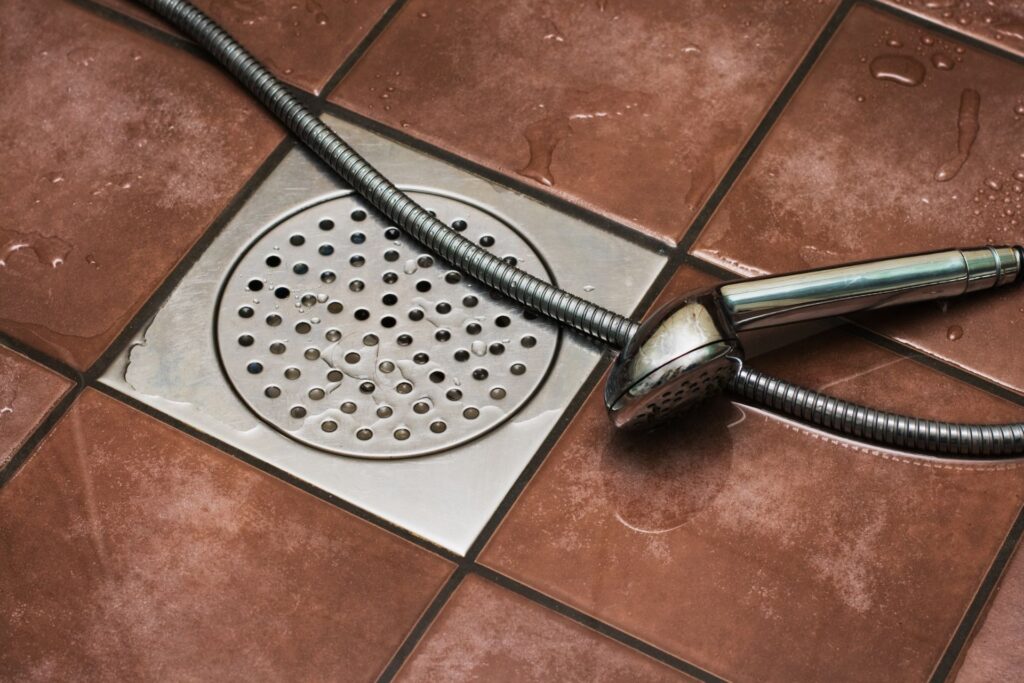
FAQs: About How To Unblock Shower Drain
Shower drains commonly get blocked due to the accumulation of hair, soap scum, mineral buildup from hard water, and occasionally, small objects like jewelry or bottle caps that accidentally fall in.
While chemical drain cleaners can be effective, they are not recommended as a first option due to their potential to damage plumbing over time and their harmful environmental impact. Consider natural alternatives or mechanical methods first.
Regular maintenance can greatly reduce the risk of clogs. Aim to clean your shower drain at least once a month to prevent the buildup of hair and soap scum.
Boiling water can help to dissolve soap scum and minor blockages, but be cautious if you have PVC pipes, as very hot water can soften or damage PVC. Use warm water instead if you’re unsure of your piping material.
To plunge a shower drain effectively, cover the overflow hole with a wet cloth to create a vacuum, place the plunger over the drain, and use forceful thrusts to dislodge the clog. It may take several attempts to clear the blockage.
A plumbing snake, or drain auger, is a flexible coil of wire that can be pushed through the drain to break apart or retrieve clogs. Insert the head of the snake into the drain and turn the handle to extend it further until you feel resistance, then twist it to catch and pull out the debris.
No, baking soda and vinegar are safe, natural cleaning agents that provide an eco-friendly way to clear clogs without damaging your plumbing.
If DIY methods fail, the clog may be too deep or too severe for home remedies. In this case, it’s best to call a professional plumber to avoid damaging your pipes or creating a bigger problem.
Yes, it’s useful to have a plunger, a plumbing snake, and a wet/dry vacuum. These tools can handle most types of clogs and are good to have on hand for quick fixes.
Prevent future clogs by using a drain cover to catch hair, cleaning the drain regularly with baking soda and vinegar, minimizing the use of oily bath products, and avoiding the disposal of solid objects down the drain.
Conclusion
Concluding our discussion on the vital task of tackling blocked shower drains, it’s essential to underscore the importance of addressing this common household issue swiftly to prevent any potential water damage or further plumbing complications. While we’ve outlined several effective strategies for you to attempt, it’s crucial to acknowledge when the situation is beyond DIY efforts and the expertise of a professional plumber is required. Remember, taking action quickly not only saves you time and money but also preserves the integrity of your home’s plumbing system. We encourage you to give these methods a try, armed with the knowledge that sometimes, seeking professional assistance is the best course of action. Good luck on your journey to a clear and fully functional shower drain. We’re rooting for you and your home’s plumbing health!
Contact Our Auckland Shower Installation Specialists Now
About the Author:
Mike Veail is a recognized digital marketing expert with over 6 years of experience in helping tradespeople and small businesses thrive online. A former quantity surveyor, Mike combines deep industry knowledge with hands-on expertise in SEO and Google Ads. His marketing strategies are tailored to the specific needs of the trades sector, helping businesses increase visibility and generate more leads through proven, ethical methods.
Mike has successfully partnered with numerous companies, establishing a track record of delivering measurable results. His work has been featured across various platforms that showcase his expertise in lead generation and online marketing for the trades sector.
Learn more about Mike's experience and services at https://theleadguy.online or follow him on social media:
